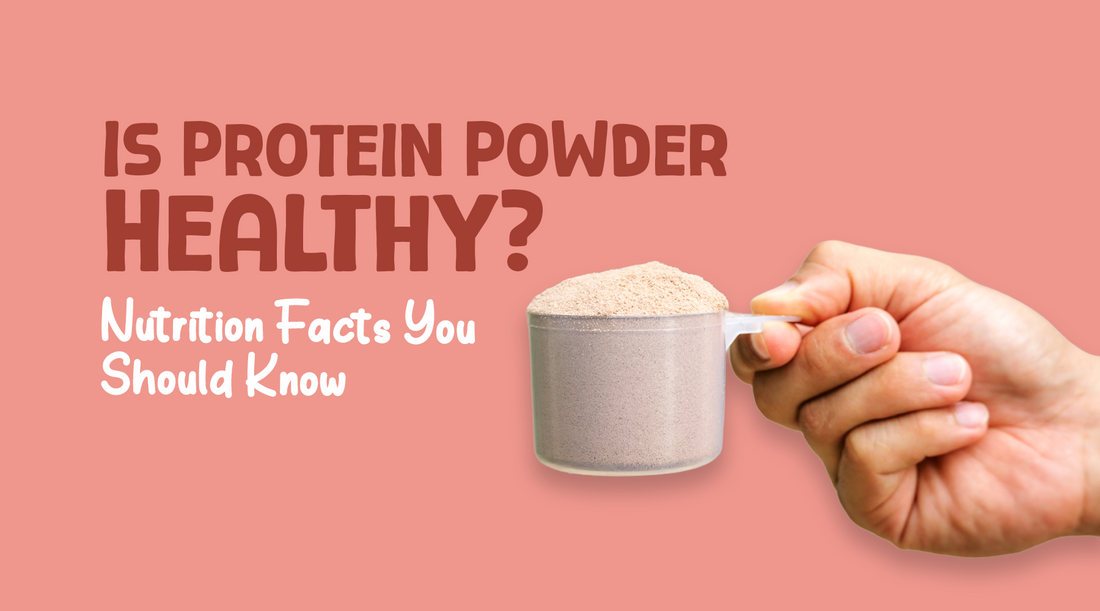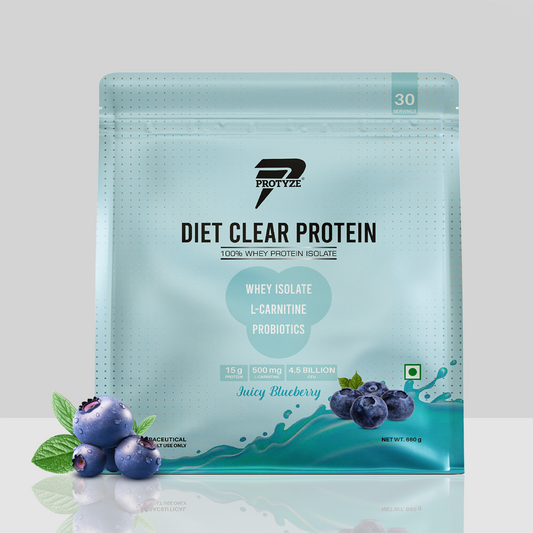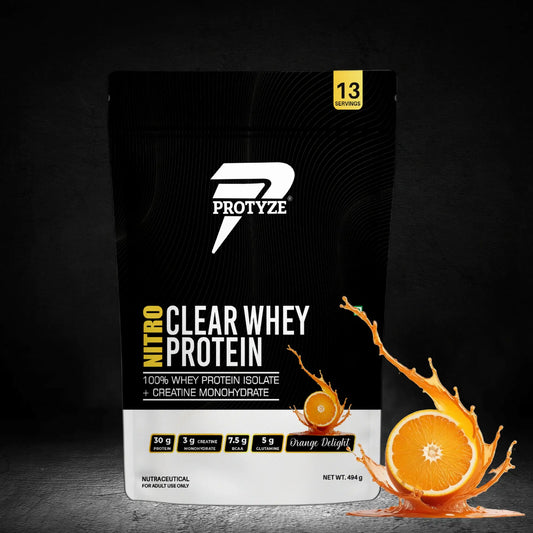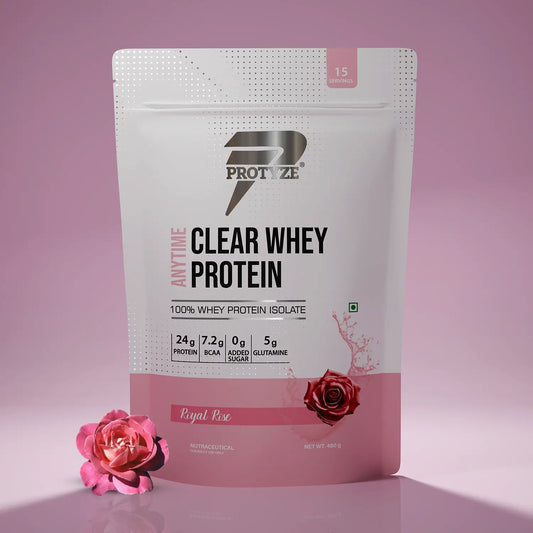Protein powder has become one of the most popular health and fitness supplements in the world. From athletes and gym lovers to busy professionals and even older adults, everyone seems to be adding it to their daily routine. But with all the hype, one big question remains: Is protein powder really healthy?
The truth is, protein powder can be a powerful tool for building muscle, supporting weight loss, boosting recovery, and filling protein gaps in your diet. But not all protein powders are created equal, and how you use them matters a lot. Some are packed with clean, high-quality whey protein like Protyze Clear Whey Protein, while others may contain added sugars, fillers, or artificial ingredients.
In this guide, we’ll break down the nutrition facts, health benefits, possible risks, and smart ways to use protein powder so you can decide if it fits into your lifestyle. Whether you’re looking to get stronger, lose weight, or simply stay healthy, this article will give you the clarity you need.
What Is Protein Powder?
Protein powder is a supplement made from protein-rich foods, turned into a powder you can mix with water or milk. It comes from sources like whey (from milk), soy, pea, or eggs. Whey protein, which comes from cheese-making, is the most popular because it’s easy to digest and full of amino acids. You can use it in shakes, smoothies, or even recipes. It’s a quick way to get protein when you’re busy or can’t eat enough from food alone.
Nutrition Facts of Protein Powder
Protein powders vary, but here are the basics based on a typical 30-gram scoop:
-
Protein Content: Most have 20-30 grams of protein per serving. For example, Protyze Anytime Clear Whey Protein gives 24 grams.
-
Calories: Ranges from 100-150 calories, depending on added ingredients. Protyze Diet Clear Whey Protein has about 60 calories with 15 grams of protein.
-
Carbs: Usually 1-5 grams, often from sweeteners or fillers. Some, like Protyze options, have minimal carbs.
-
Fats: 0-3 grams, mostly in whey concentrates. Isolates like Protyze’s are lower in fat.
-
Amino Acids: Rich in essential amino acids like leucine, which helps build muscle.
- Other Nutrients: Some powders add vitamins, minerals, or extras like probiotics (found in Protyze Diet Clear Whey Protein) or creatine.
Check the label to know exactly what’s in your powder, as brands differ.
Is Protein Powder Healthy?
Yes, protein powder can be healthy when used right, but it depends on how you use it and the type you choose. Here’s a closer look:
Benefits of Protein Powder
-
Muscle Growth: Protein provides amino acids to repair and grow muscles after exercise.
-
Weight Loss: It keeps you full, reducing hunger, especially in low-calorie options like Protyze Diet Clear Whey Protein.
-
Convenience: A quick shake is easier than cooking when you’re on the go.
-
Strength Support: Regular use with workouts can boost strength over time.
-
Recovery: It helps muscles heal faster after tough sessions.
- Bone Health: Some proteins, like whey, support calcium absorption for stronger bones.
Possible Risks
-
Overuse: Too much protein can strain your kidneys or liver, especially if you have health issues.
-
Additives: Some powders have sugar, artificial flavors, or fillers that might not be healthy.
-
Digestive Issues: High doses can cause bloating or gas in some people.
- Not a Food Replacement: It’s a supplement, not a full meal, so balance it with whole foods.
When used in moderation and with good ingredients, protein powder is a healthy addition.
Types of Protein Powder
Different types suit different needs:
-
Whey Protein Concentrate: 70-80% protein, with some fats and carbs. Good for general use.
-
Whey Protein Isolate: 90%+ protein, low in fat and carbs. Ideal for weight loss or lactose sensitivity, like Protyze Anytime Clear Whey Protein.
-
Whey Protein Hydrolysate: Pre-digested for fast absorption, great for quick recovery.
-
Plant-Based (Pea, Soy, Rice): Good for vegans or those with dairy allergies.
- Casein: Slow-digesting, best for overnight recovery.
Clear whey, like Protyze’s range, is a type of isolate that mixes into a light, juice-like drink.
Who Can Benefit from Protein Powder?
Protein powder is helpful for many people:
-
Athletes: It supports muscle growth and recovery after intense training.
-
Weight Lifters: Extra protein helps build bigger muscles.
-
People Losing Weight: Low-calorie options like Protyze Diet Clear Whey Protein help control hunger.
-
Busy Individuals: It’s a fast protein source when meals are hard to plan.
-
Older Adults: Protein can help maintain muscle as you age.
- Vegetarians/Vegans: Plant-based powders fill protein gaps.
It’s not just for gym-goers—anyone needing more protein can use it.
How Much Protein Powder Is Safe?
The right amount depends on your needs:
-
Daily Protein Needs: Most people need 0.8-1.2 grams of protein per kg of body weight. Active people or those building muscle need 1.6-2.2 grams per kg (e.g., 112-154 grams for a 70kg person).
-
Per Serving: 20-40 grams of protein powder is typical, depending on your diet. Protyze Anytime Clear Whey Protein (24g) fits a standard serving.
-
Limit: Don’t overdo it—more than 2-3 grams per kg daily (e.g., 140-210 grams for 70kg) might not help and could harm.
- Timing: Use it post-workout or as a snack, not all at once.
Balance it with food to stay healthy.
How to Choose a Healthy Protein Powder
Pick the right one with these tips:
-
Check Ingredients: Look for minimal additives, no sugar, or natural flavors. Protyze Anytime Clear Whey Protein uses clean ingredients.
-
Protein Source: Choose whey isolate or plant-based based on your needs.
-
Certifications: Pick brands with quality checks for safety.
-
Taste and Mix: Ensure it tastes good and mixes well, like Protyze’s clear whey options.
- Your Goals: Select based on muscle gain, weight loss, or general health.
A good powder supports your health without extra junk.
Protein Powder Myths
Let’s clear up some common myths:
-
Myth: Protein powder is only for bodybuilders. Truth: It’s for anyone needing more protein.
-
Myth: It causes kidney damage. Truth: Only a risk if you overdo it or have kidney problems already.
-
Myth: It’s better than food. Truth: It’s a supplement, not a replacement for whole foods.
- Myth: All powders are the same. Truth: Quality and ingredients vary, so choose wisely.
Knowing the facts helps you use it right.
Conclusion
So, is protein powder healthy? Yes, it can be when used properly! It’s a great way to get extra protein for muscle growth, weight loss, or overall health, with nutrition facts showing 20-30 grams of protein per serving and low calories in good options. Benefits like convenience and recovery support make it valuable, but watch for risks like overuse or additives. Products like Protyze Anytime Clear Whey Protein (24g protein) and Protyze Diet Clear Whey Protein (15g protein) offer clean, tasty choices to fit your needs. Balance it with a good diet, use it in moderation, and it can be a healthy part of your life!
